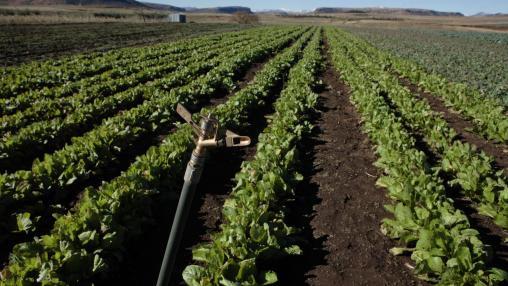
Ukraine and global agricultural markets two years later
Two years after Russia launched its full-scale invasion of Ukraine on February 24, 2022, the war continues to disrupt agricultural production and trade in Ukraine—one of the world's largest agricultural exporters—and poses an ongoing threat to global food security. Yet global commodity markets have adjusted to these disruptions, in part to due to increased exports by other suppliers, including Russia, easing the initial shock.
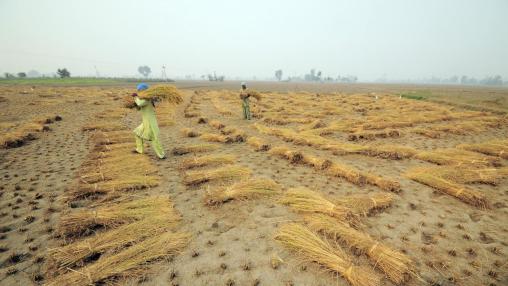
India’s export restrictions on rice continue to disrupt global markets, supplies, and prices
Six months after India introduced a set of export restrictions on rice with the aim of holding down domestic prices, global rice markets continue to feel the impact.
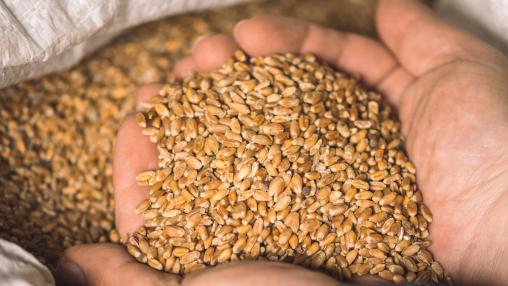
Food Prices Decline in January But Potential Shocks Remain
The FAO Food Price Index continued its decline in January, driven mainly by falling cereal and meat prices. The January 2024 Index was 10.4 percent below its January 2023 level.
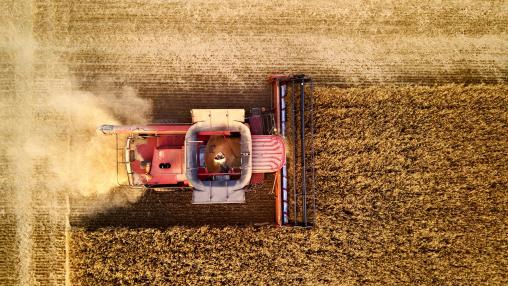
FAO Food Price Index Falls in 2023
In 2023, the FAO Food Price Index stood nearly 14 percent below its 2022 value, according to the report’s January edition. The December Index also declined month-on-month from November, falling 1.5 percent due to declining sugar, vegetable oil, and meat prices.
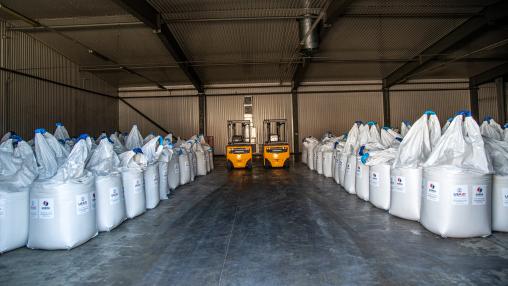
Fertilizer policies amid global supply and price shocks
Achieving efficient and effective fertilizer usage in agricultural production is a critically important economic and environmental policy objective for countries at all stages of economic development, although the nature of the policy problem may vary radically in different contexts.
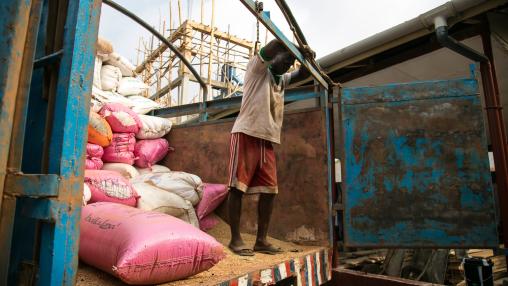
A new rapid assessment tool for food security risks posed by global price shocks
International food commodity prices have experienced a series of shocks over the past decade. The prices of rice, maize, and wheat spiked in 2007-08 as a result of supply shocks, demand for biofuels, and export trade restrictions. Commodity prices increased again in 2010-11. And most recently, global supply chain disruptions in the aftermath of the COVID-19 pandemic and Russia’s invasion of Ukraine sent international food and fertilizer prices soaring, though they have moderated somewhat after peaking in mid-2022.

FAO Food Price Index, AMIS Market Monitor See Reduction in Price Volatility
The FAO Food Price Index remained stable in November, with increased vegetable oil, dairy, and sugar prices balanced by falling cereal and meat prices. The November 2023 Index was 10.7 percent below its 2022 level.
The Cereal Price Index decreased by 3 percent in November to reach nearly 20 percent below its November 2022 level. Maize prices fell most significantly in November due to increased sales in Argentina and higher seasonal supplies in the U.S. Wheat prices also fell, albeit less sharply, due to ongoing harvests in Russia. Rice prices remained stable in November.
Emerging Trends in the Global Soybean Complex
Global changes in soybean production and consumption are reshaping global markets. Global oilseed prices have fallen considerably since last year’s record highs. World soybean production is likely to hit a record high in 2023/24, with global ending stocks projected to rebuild for the second consecutive year. Global soybean trade continues to be driven by China, which accounts for about 60% of total soybean imports. China’s domestic consumption has grown at about 4% per year over the past 10 years.

Despite improved global market conditions, high food price inflation persists
Since peaking in April 2022, global agricultural food commodity prices have declined by almost 25% as of October 2023, according to the UN Food and Agriculture Organization’s (FAO) food price index (Figure 1). Contributing to the decrease were strong harvests in large food producing countries, steep declines in shipping costs, and more affordable energy and fertilizer prices (Figure 2).
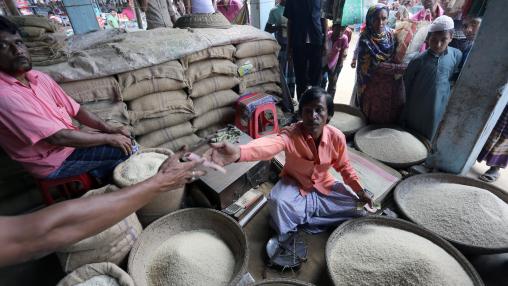
How India's Rice Export Bans Could Impact Regional Trade
The BIMSTEC - Bay of Bengal Initiative for Multi-Sectoral Technical and Economic Cooperation – country group consists of Bangladesh, Bhutan, India, Nepal, Sri Lanka, Myanmar, and Thailand. Together, these countries are home to more than 712 food-insecure people, and the prevalence of food insecurity has increased in the majority of the region since 2014. Given this food security situation, India’s recent export ban of non-basmati white rice and export duty on parboiled rice raise significant concerns for the region.